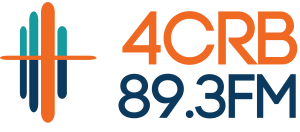With QSuper closing its advice arm (QInvest – QSuper quits financial advice ) recently, we are starting to receive more enquiry from members with concerns on how to manage their defined benefit options.
This is a complicated area and there are both risks and opportunities that need to be evaluated before making any decisions. Defined benefit funds are no longer available for new members – for most QSuper members this was removed as an option after 2008 – and that is the first clue that they are pretty valuable.
AT RFS Advice, Niki Schneider, one of our wealth advisers, has made a point of learning the intricacies of QSupers’ defined benefit funds and I will pass to her to discuss some of the points you need to be aware of if you are one of the lucky few remaining in them.
Niki:
“The defined benefit space is not very crowded and, as the number of people in them has reduced, fewer and fewer advisers work in this speciality.
Personally, I find them really interesting and always get a bit horrified when I hear members have, without advice, moved to the accumulator option.
Defined Benefit options are a little more complicated but they can offer real advantages. When a member comes to me we are usually discussing one of the below:
Contributions, loss of insurances, reduced hours or retirement into an income stream vehicle
· Contributions, especially employer contributions, are a big advantage in this product and as a member gets closer to retirement, lifting these contributions could be an advantage that isn’t available outside of the defined benefit arena.
· Insurances are generally included in the defined benefit package but death and disability cover ceases at age 55. Basically your balance becomes the insurance pay out, after that. For many the need for insurances decline as you build up your asset base so this may not be a negative. Alternatively, there may be a need for insurance to cover debt or health concerns and these need to be considered as you approach the age limit.
· With reducing hours, the maths is important. Defined benefits works on a multiple of salary and clients usually come to us to query the impact of reducing hours, maybe moving to part time or even taking early retirement. Health professionals, judges, police officers school principals and teachers often suffer from burn out and they want to know if that ‘pot of gold’ can be dragged a little closer. Surprisingly, reduced hours do not always have as big an impact as many think and while working full time to retirement age will generally give a much better financial result, money is not the only consideration.
· Transitioning out of the defined benefit to either an accumulation account or retirement income stream product at retirement can be a complicated process, especially for larger balances and there are strategies to manage that process as tax effectively as possible.
· Lastly estate planning. Defined benefit funds have characteristics that require an experienced eye and non-specialists in this area need to be careful in setting up how benefits will be paid to an estate.
With members who come to RFS, we work through the options and impacts, but first and foremost we need to understand you, how you got here and what you want you and your family’s future to look like. We then work with you to build a realistic plan to achieve it.
Sometimes, we are the bearer of bad news and might be suggesting you work a little longer or continue with your existing hours – never very popular – but at least we can work towards an amount and a date that achieves the retirement lifestyle you visualise.
At RFS you don’t just get an adviser, you get a team. My associate will know your file almost as well as I do (maybe better, but don’t tell her that) and there is also a client service officer that works closely with us, who you will also meet.
We have investment specialists and one of the partners, Troy Theobald is listed in the Baron’s Top 50 investment advisers, as well as winner of the Independent Financial Advisers 2020 Investment Adviser of the Year. Troy is increasingly focusing on investment management and we get the benefit of having him help build our client portfolios.
The feedback from our clients is that they want the person they are talking to know them and their history. Time is our most valuable resource and re-explaining yourself continually is frustrating, inefficient and can lead to errors.
There is a major difference between how RFS provides advice verses the traditional QInvest model.”
Niki Schneider has a Masters in Financial Planning, is a member of the Golden Key International Honours Society and achieved a finalist position in the 2019 AFA Excellence in Education Awards.
If you, a friend or a colleague is looking for help with your QSuper investments, we have the award winning team to help you.
















